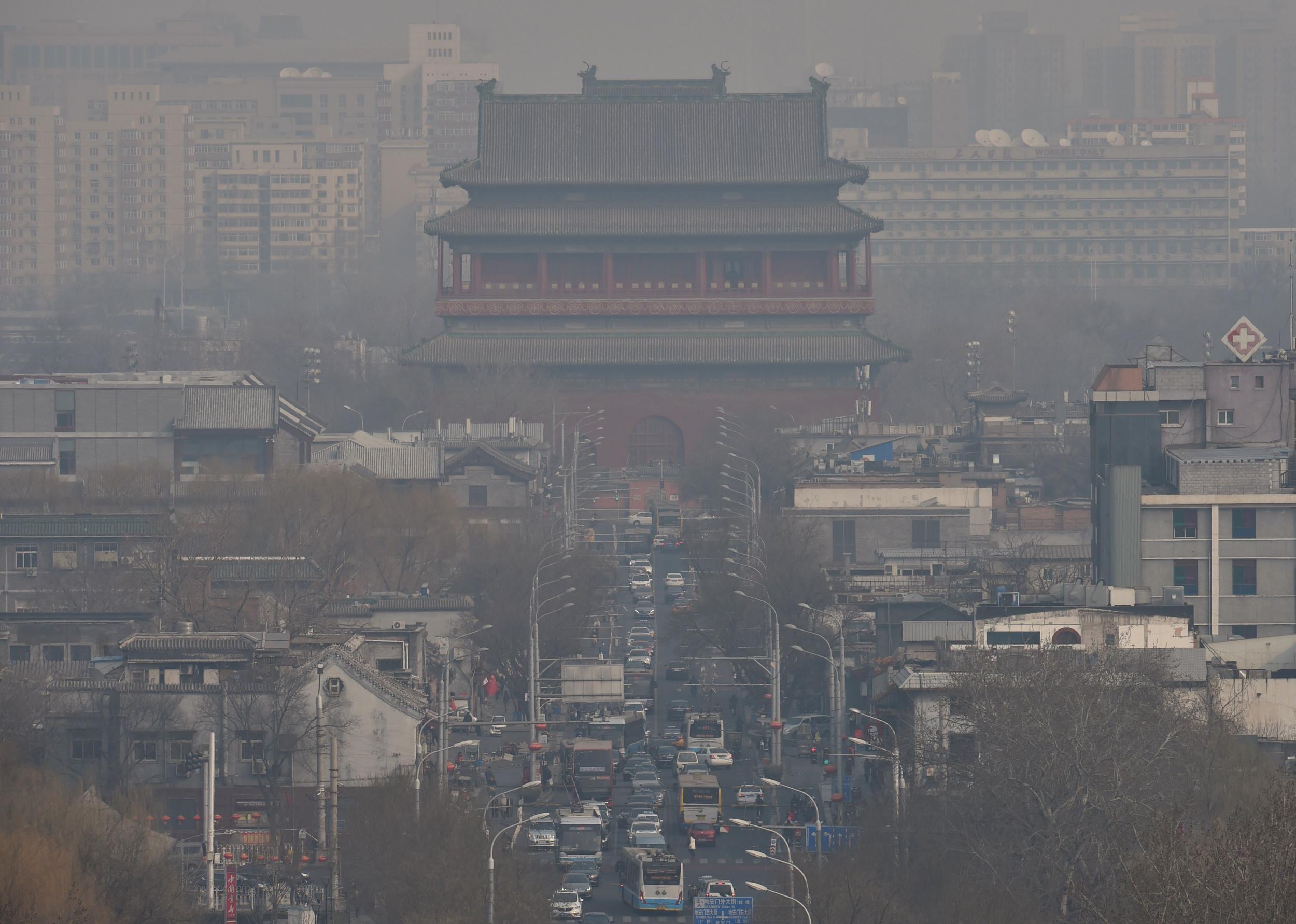China issues three-day smog alert and orders factories to cut output by 50%
Beijing recently named top city for pollution reduction

Your support helps us to tell the story
From reproductive rights to climate change to Big Tech, The Independent is on the ground when the story is developing. Whether it's investigating the financials of Elon Musk's pro-Trump PAC or producing our latest documentary, 'The A Word', which shines a light on the American women fighting for reproductive rights, we know how important it is to parse out the facts from the messaging.
At such a critical moment in US history, we need reporters on the ground. Your donation allows us to keep sending journalists to speak to both sides of the story.
The Independent is trusted by Americans across the entire political spectrum. And unlike many other quality news outlets, we choose not to lock Americans out of our reporting and analysis with paywalls. We believe quality journalism should be available to everyone, paid for by those who can afford it.
Your support makes all the difference.Beijing has issued its third major smog alert this year, one day after being named China’s top city for reducing air pollution.
The “orange” alert, the second-highest, will run from Monday to Wednesday, the Beijing environmental protection bureau said in a post on its Weibo account.
The central part of the Beijing-Tianjin-Hebei region is expected to see medium to heavy pollution over the three days, it added.
It is the second smog alert issued for the Chinese capital this month.
Two previous orange alerts were issued in January and March, both of which lasted three days.
An orange alert requires factories that make furniture, cement and other heavy industry to limit output to 50% from 80%.
Beijing achieved the biggest reduction in average pollution among 28 cities in northern China from October to February, the Ministry of Ecology and Environment said last week on Weibo.
The Chinese government launched a “battleplan” against smog during the winter months, which pollution usually worsens due to heating.
The plan included switching households and industries to natural gas from coal for their heating and other needs, as well as compulsory cuts in steel production in the surrounding areas.
Beijing has suffered serious air pollution for many years, produced by exhaust emissions, coal burning in the surrounding regions and local construction dust.
Join our commenting forum
Join thought-provoking conversations, follow other Independent readers and see their replies
Comments